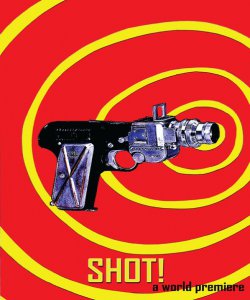SHOT! tells the North Philadelphia story from the inside
| Associate Professor of Theater Kimmika Williams–Witherspoon refuses to let the young men and women of North Philadelphia be written off as thugs.
Tied together by circumstance, they build family beyond blood bonds, claim neighborhood blocks as their own and mark their territory with graffiti tags. But their stories are blunted by media images that depict their community in a negative light, creating an image that is both simplistic and distorted. In SHOT!, Temple Theaters’ latest production, Williams-Witherspoon goes beyond the stereotype and reveals the often overlooked story of North Philadelphia and the people who call the area home. Through poetry, interview material and documentary images, playwright Williams-Witherspoon and director Doug Wager paint a portrait of north Philadelphia’s history and the residents who have lived, worked and raised families in the area for generations |
 |
| SHOT! grew out of an oral history project by Williams-Witherspoon and former BTMM professor Eugene Martin. With funding from an interdisciplinary seed grant, the two worked together to document the urban history of North Philadelphia.
As she began to compile pages of interviews with local community members, politicians and activists, Williams-Witherspoon saw an opportunity to turn the text into a work of art. The original script — which focused on the women who anchor households, survive incredible odds and struggle to make a living for their children, grandchildren and family members — evolved into a story about North Philadelphia’s past, present and its struggle to survive in to the future. “I didn’t want this community to be perceived as victims of their environment — they are not victims at all,” she said. “The North Philadelphia we see today is not what it always was. This didn’t happen overnight.” SHOT! begins during the riots of 1964, which were spurred by tensions between area residents and police. More than 200 stores were damaged or destroyed in the three days of rioting and never reopened. The disappearance of commerce was a huge blow to the area. From that point on, the area began a steady decline, Williams-Witherspoon explained. “The neighborhoods were so devastated that the news reporters began to refer to this area as Beirut,” she said. “In recent years some of the young men in the area picked up on that reference and dubbed themselves the Beirut Boys.” Through SHOT!, the Beirut Boys and community members like 77-year-old Eleanor Jordan and 50-year-old Rene Arlene King are given a rare opportunity to share their voice with an attentive audience. In preparation for the roles, student actors studied their voices and mannerisms to create a documentary-style play that gives voice to those who have been voiceless. “The outside perception of North Philadelphia is largely based on fear,” Wager said. “Through SHOT!, we wanted to create a level of compassion and human understanding about the people who live in north Philadelphia — a neighborhood that is just as rich, complex and human and any other.” SHOT! runs Oct. 27 through Nov. 15 in Tomlinson Theater. For tickets and information, visit www.temple.edu/sct/theater
|
|